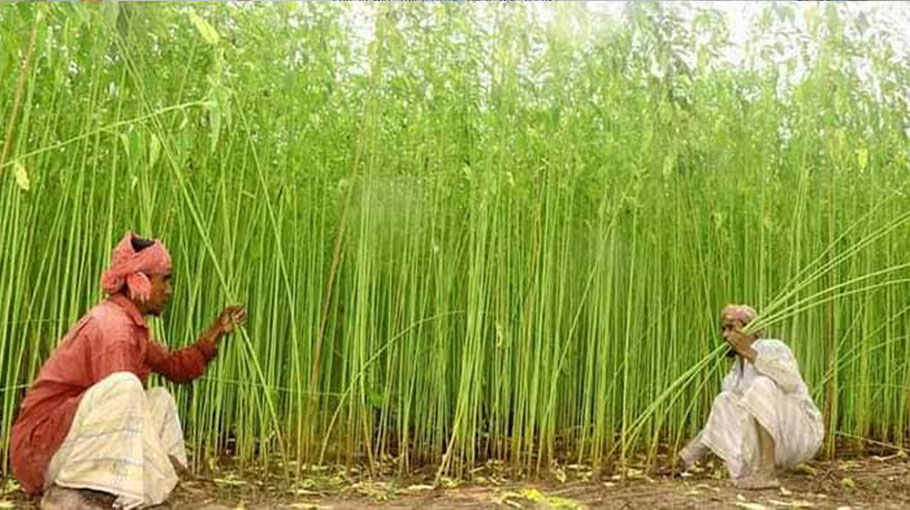Water scarcity hampers jute processing in Pabna

Farmers in Pabna’s Bera upazila are in dire straits as the harvesting of jute has come to a standstill, thanks to the lack of proper facilities for decomposing jute plants, including a water crisis.
Farmers said if the ongoing water crisis continues, they will have to count huge loss this year as quality fibres cannot be extracted without properly rotting.
In the upazila, jute stalks were seen lying on the ground and getting dried.
Talking to The Bangladesh Post, farmers said that the plants were cut about two weeks ago, but they could not move the jute plants to water bodies for decomposition.
Upazila agriculture officials said that jute was cultivated on 3,400 hectors of land this year.
Following harvest, jute stalks are tied into bundles and submerged in flowing water for 20 days and then fiber extraction is done.
From planting seeds to growing the jute -- including buying seeds, fertilisers and pesticides, laborers' wages--, the cost of cultivating jute in every bigha of land is Tk10,000-12,000.
Farmers have to pay Tk7-8 for decomposing one bundle of jute under the knee-deep water in the pond.
There is an additional cost to hire workers and vehicles to take jute from distant fields. Workers have to pay Tk350-Tk400 per day which is about Tk150 more than other times.
Abdur Razzaque, a farmer who cultivated jute in his ten-bighas of land in Bera upazila, said that he cut jute plants a few days ago, but failed to find a suitable place for decomposition of raw jute.
‘We are now waiting for rain. If the drought-like situation continues, we have to face a huge loss,’ he added. Another jute grower Akimul Islam said that every year they had to cut the jute plants a bit early as rain water started entering their field.
‘But the situation is different this season,’ he said.
Nusrat Kabir, agriculture officer in Bera, said that jute plants were getting dried up as jute growers in the district were facing problem in processing jute plants due to lack of rain this season.
‘We trained and advised the farmers to rot jute using ribbon method,’ he said.


